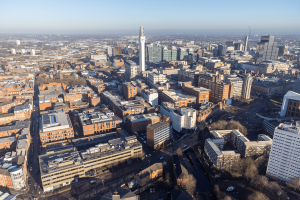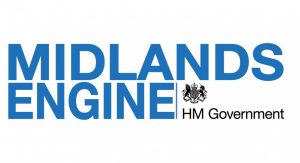Signs of optimism for businesses as UK narrowly avoids recession

The UK’s economy saw weak growth in the first three months of the year according to the Office for National Statistics.
The economy grew by 0.1% in the first three months of the year but shrank in March as a result of strike action
“Across the quarter as a whole, growth was driven by IT and construction, partially offset by falls in health, education and public administration, with these sectors affected by strikes,” said Darren Morgan, director of economic statistics at the ONS.”
Neil Rudge, head of Enterprise at Shawbrook, said: “A drop in monthly GDP figures signals a longer-term period of slowflation, but a 0.1% growth in the three months to March means we have narrowly avoided a technical recession.
“Regardless, we are still seeing lots of optimism. While traditional exits and M&A activity has slowed, we’ve seen an increase in SMEs seeking funding to fuel growth opportunities, which suggests business owners are confident.
“Of course, there remains challenges for SMEs in terms of managing cash-flow, particularly in the shadows of the cost-of-living crisis, recruitment difficulties and cost of debt pressures, so it’s crucial business leaders work with a funding partner that can provide flexible and bespoke solutions to enable them to act nimbly and efficiently.”
Meanwhile, concerns about the pressure on businesses have been raised after the Bank of England raised interest rates for the 12th time in a row, taking borrowing costs to the highest point since October 2008.
The Monetary Policy Committee (MPC) voted 7 to 2 to increase rates by 0.25 percentage points to 4.5 per cent.
Interest rates have been rising since December 2021 in an effort to restrain prices by controlling inflation, which currently stands at 10.1 per cent. The bank is targeted to keep inflation at two per cent.
After experiencing “large and volatile moves in global financial markets” in March with the failure of Silicon Valley Bank and UBS’ purchase of Credit Suisse, the MPC says whilst risk remains “there is likely to be only a small impact on GDP from the tightening of credit conditions” related to the global banking sector.
It expects the UK’s GDP to be flat during the first half of 2023, but then projects it will grow “modestly”.
Economic activity has been stronger than the MPC expected in February, with the Committee saying that the improved outlook reflects “stronger global growth, lower energy prices, the fiscal support in the Spring Budget, and the possibility that a tight labour market leads to lower precautionary saving by households”.
Ian Girling, chief executive of Dorset Chamber, said: “The latest interest rate rise is another blow for many hard-pressed businesses.
“While not unexpected, it will be disappointing for those businesses in Dorset most exposed to borrowing costs, cash flow pressures and consumer discretionary spend.
“The combination of high interest rates and high inflation means the worst of both worlds for many firms as operating and borrowing costs both go up.
“The government should consider further action to break this vicious cycle by addressing supply side issues and measures to boost economic growth, such as through investment in infrastructure, skills training, and global trade.”
Mike Randall, chief executive at Simply Asset Finance, said: “Another rise for interest rates is a stark reminder that we’re not out of the woods of high inflation yet. While March’s drop in inflation shows signs of the Bank of England’s tightening cycle beginning to bear fruit, we cannot dismiss the fact that businesses are still faced with the highest rates of inflation and interest combined, which continue to hamper their growth.
“For small businesses, it’s yet another financial blow to face after a tough trading month of bank holidays, but studies are showing leaders remain as resilient as ever.”
Separately, the Bank also today said it may take longer than expected to bring inflation down in the long-term.
The West of England metro mayor Dan Norris said: “People in the West of England will be wracked with anxiety by this news. This Downing Street mortgage penalty is leaving families worse off, and has destroyed the dreams of home ownership for so many.
“Enough is enough – ministers need to get a grip. First things first, they should finally listen to my calls and bring in a proper windfall tax on the enormous profits of oil and gas giants now to support hard-pressed residents in the West, and so lift them out of this crisis.”









